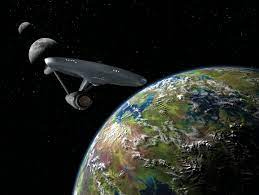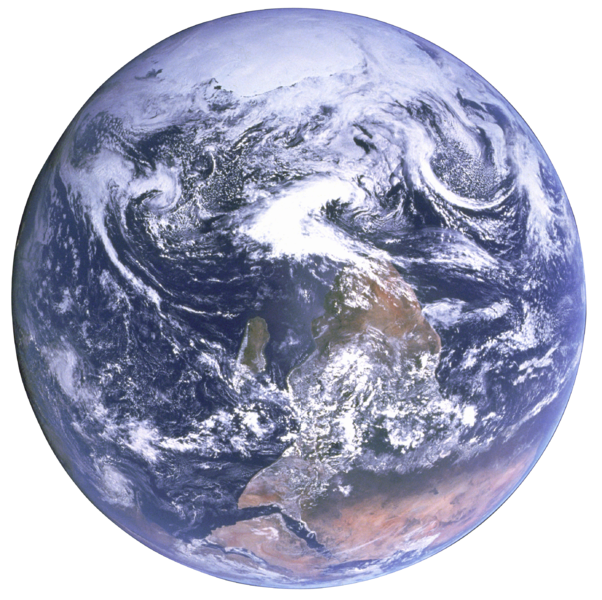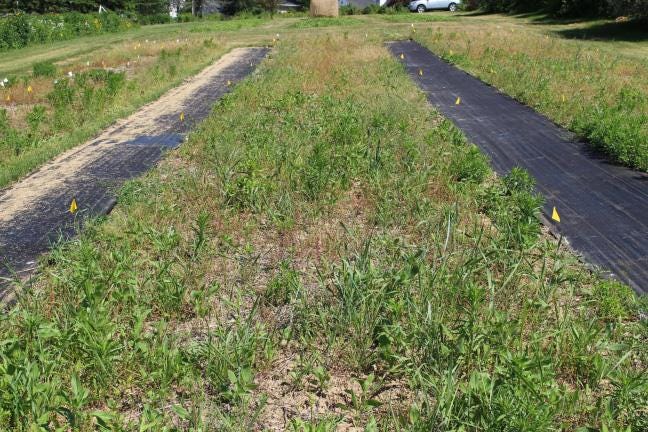If you’re just joining the conversation, and you have a little time, please visit my Substack homepage to read the preceding entries, including the first two parts of this list.
PROPOSITIONS, continued:
13. We’re simply a failed species? Friends who posit this say that we’re clearly not fixable and that the problems are too intractable. Now, they say, all we can do is look after each other as best we can while watching the catastrophe play out. To be fair, the evidence to support their allegation seems to be all over the planetary crime scene, and the scale of the catastrophe, more often than not, seems beyond our control. I’m deeply sympathetic to this idea, and feel it more often than is safe to mention in polite conversation, but for me it fails in a few ways.
First, it’s too easy. It’s the flip side of the business-as-usual assumption that our radical “success” as a species gives us carte blanche to turn life on Earth into industrial feedstock. If it’s ours to abuse, it seems, then the problems we create are ours to ignore. Such fatalism gives us permission to stand back and stand by.
Second, we have much more than ourselves to look after. Entire cultures and peoples and histories have been sacrificed, with the survivors often living amid severely reduced biodiversity and the earliest consequences of climate change (flooding, excessive heat, agricultural losses). They are the other collateral damage in our war against ecological restraint, beyond the loss of diverse, exquisite, intelligent, fascinating species who are already suffering an extinction rate a thousand times higher than the evolutionary norm. We forget, somehow, that all life wants to live as much as we do, and that we don’t have a good argument against their equal right to exist. (I’m talking about extinctions here, not the ordinary death of what’s-for-dinner.) The fact that very few laws in the world codify any rights for other species speaks more to our cultural blind spot than a justification for our actions.
Third, it conflates our civilizational error with those cultures which, unlike ours, never imagined that they were in charge of the Earth. All roads led to the city-state and aggressive agriculture, in this vision, but it belies the fact that for most of our species’ history, and in most early human cultures, our ancestors lived in small groups responsive to the limitations of their chosen landscape. While there’s plenty of evidence to show that first peoples wiped out various large species – tasty megafauna from Australia to North America – they otherwise lived for millennia with what seems like intentional restraint. They have been displaced, and we, the descendants of Pyrrhic victors, have mistaken our catastrophic sprawl for success.
To recognize the failure now but claim we’re merely a failed species is to privilege what we’ve gained and ignore what we owe.
The problem is not human nature; it’s culture.
*
14. The Anthropocene is particularly difficult to address because to do so requires rewriting the basic cultural code that tells us over and over, every day, that the Earth is ours. Our maps, our trade networks, our food systems, our languages all whisper into our ear that it’s not the planet, it’s our planet. Even for those of us who dearly love nature and worry about its fate, this notion that all life on Earth is ours to take or manipulate pervades the microplastic-laced air we breathe. We participate daily as consumers in the reckless transformation, and spend nearly all of our waking hours unconscious to the assumption behind it.
In the 21st century we’re living within the casual notion behind ten thousand sci-fi stories, that a planet is merely a stage for our actions, good or bad. Star Wars, Star Trek, Dune, the Marvel narratives and many more all posit the same idea: We give planets their meaning.
Economies have replaced ecologies as our primary physical and emotional landscapes. Nearly everything in our lives privileges human activity – no matter how trivial (Bitcoin, anyone?) – over the survival of other species. We (fretfully) allow mountaintop removal, factory farming, bottom trawling, and wholesale loss of ecosystems as necessary to the human project. We might feel like others are allowing these things and we’re just stuck with their decisions, but it’s rarely that simple. Eileen Crist defines human supremacy – which is what we’re talking about here – in an interview in The Sun as “a widely shared, unconscious worldview that tells us we are superior to the rest of nature and thus entitled to treat nonhumans and their habitats however we please.” The worldview permits us to seize “the power of life and death over nonhumans” and take “aggressive control of all geographical space.” Think about that next time you read an article on adventurous meat-eating in a glossy travel magazine.
The intellectual tradition which has pushed back against our self-importance is a noble one – Galileo teaching us that we are not the center of the solar system, Darwin teaching us that we are merely a twig in the tree of evolution – but the Anthropocene puts us back on our imagined pedestal as the planet’s prime mover. And we’re not surprised. The modern environmental movement began with the notion of a fragile Spaceship Earth, with the unspoken agreement that we were its pilot.
Robert Macfarlane writes of the Anthropocene as “our crowning act of self-mythologisation,” one which “only embeds the narcissist delusions that have produced the current crisis.” Peter Brannen takes it a step further: “…there’s something emotionally satisfying about the idea that humans’ hubris and shortsightedness are so profound that we’re bringing down the whole planet with us.” Which is a reminder that the Anthropocene, perversely, elevates us in the short-term even as it promises an existential lesson in humility over the long-term. Sure, drunk on our success, we broke into the cockpit and are “flying” the spaceship for now, but don’t understand the job we’ve assigned ourselves. We are as subject to natural limitations – if a species devours all available resources, it dies – as a rosebush or octopus, regardless of our smug sense that we will outsmart that limitation.
“We are as gods and might as well get good at it,” wrote Stewart Brand in 1968 on the opening page of the Whole Earth Catalog, which sold “access to tools” to people seeking “personal power.” It was an astute observation, though marked by as much hubris (and business savvy) as intellect. Not only did Brand encourage us to assume a god-like status, but more remarkably he was confident that we could learn on the job quickly enough to overcome what he called our “gross defects.” Given our extraordinary population growth and the subsequent decimation of biodiversity since 1968, it hasn’t worked out yet. Science, despite its god-like aspirations, serves at the feet of a much more powerful set of cultural forces. Which means we are far less likely to be the attentive kind of gods who look to the long horizon and set behavioral limits in order to protect that which we shepherd, and more likely to be merely gods who resemble in their carelessness the chaotic, self-interested, tool-obsessed creatures we have taught ourselves to be.
*
15. We cannot invent our way out of the Anthropocene. Yes, new tools (CO2 extractors, offshore marine permaculture, small-scale nuclear reactors, genetic de-extinction technology) may well be helpful in undoing some of the damage created by our current tools (coal-burning power plants, combustion engines, industrial agriculture), but in reframing civilization we need ethical solutions more than technological ones. We need to look inward as well as outward.
The geoengineers who want to reflect sunlight back into space are the children of those unwitting Dr. Frankensteins who invented artificial nitrogen fixation and Round-up and diesel engines. Our focus on technology reflects, among other things, the fiction that we have achieved mastery over our fate, that we need only to master this newest challenge and then forge ahead. But mastery in the Anthropocene has actually been a form of failure, and our “control” over the fate of the planet may actually mean losing control over our own fate. The accelerating rate of extinctions is, eventually, a predictor of our longevity as a species.
The tech savants who are pushing for tech solutions are often advocates for the “good Anthropocene,” the idea that our transformation of Earth is a fine and necessary step on our new and exciting evolutionary path. I’m not going to take the time here to articulate all of the problems with reimagining Earth as a galactic launch platform for some sleek hybrid of humans and AI, but suffice it to say that I saw a beetle today that was far more interesting and sophisticated and fit (in the Darwinian sense) for an enduring, meaningful existence.
I’m not suggesting that a good lecture will change culture, or that a cabal of ecologists who can articulate the necessary ethics of a sustainable future should be given total political power (although it would be a fascinating experiment…). I’m saying that, as we talk publicly about our obligations to and interdependence upon the rest of life on Earth, we need to change culture by changing policy, by putting up guardrails to large-scale human behavior. You see it being discussed as part of CO2 emission reduction policy already: setting a high price for carbon, phasing out internal-combustion engines, eliminating governmental or institutional support for fossil fuels, etc.
So how do we set guardrails in order to revive and protect life on Earth beyond reining in CO2 emissions? Well, to start, we reshape and detoxify industrial agriculture, we price meat according to its actual cost, we educate girls, we provide universal access to contraception and family planning services, we restore wetlands, we set aside vast swathes of habitat, and we enlarge territory for indigenous people. And we restrain our worst impulses, including the invention of technologies that will just get us into more trouble.
*
16. Though many of us are trying, and many more of us have little control over the situation, from the perspective of future generations we are not being good ancestors.
*
17. If every one of us knew what we were losing, and if we each knew how to talk about the loss with each other, we wouldn’t be in the Anthropocene. Only a deep and abiding lack of understanding could allow consequences this terrible, right?
Or not. I think most of us know, explicitly or intuitively, that the world suffers deeply at our hands. Most of us don’t live in or near the worst environmental sacrifice zones – Australian open pit mines, Nigerian oil fields, Amazonian clear-cuts – but we know the Earth has diminished and we have some sense of our culpability. Most of us aren’t directly responsible for the worst impacts, but we see all around us the smaller death zones, from the parking lots squatting on former wetlands to the factory-farmed meat to the fish culled from impoverished seas to the pesticides in our garages.
We’re too busy, too distracted, too overwhelmed, too afraid, too ashamed, too careless, too unhappy, too angry, too in love with the wrong things. But amid all this we feel something about the end of the familiar Earth. We know that what we see locally cannot be sustainably writ large. There’s too much death around us to completely ignore.
We each have our own field guide to the Anthropocene.
*
18. Finally, because I’ve been in a Barry Lopez mood recently, here’s a relevant bit of wisdom from him in his Introduction to the 2020 anthology of Orion writing, Earthly Love (billed as “poetry and prose that illuminates the nature of love in the Anthropocene”). So much of what has gone wrong, he says, can be chalked up to the failure to love. He’s not talking only about the love of nature; he’s connecting the cultural dots of misplaced power (profit-focused corporations and self-serving politicians) and misplaced energy (war and genocide) to their environmental consequences. I particularly like his Anthropocene definition of an ignoramus:
Evidence of the failure to love is everywhere around us. To contemplate what it is to love today brings us up against reefs of darkness and walls of despair. If we are to manage the havoc—ocean acidification, corporate malfeasance and government corruption, endless war—we have to reimagine what it means to live lives that matter, or we will only continue to push on with the unwarranted hope that things will work out…
It is more important now to be in love than to be in power. It is more important to bring E. O. Wilson’s biophilia into our daily conversations than it is to remain compliant in a time of extinction, ethnic cleansing, and rising seas. It is more important to live for the possibilities that lie ahead than to die in despair over what has been lost.
Only an ignoramus can imagine now that pollinating insects, migratory birds, and pelagic fish can depart our company and that we will survive because we know how to make tools. Only the misled can insist that heaven awaits the righteous while they watch the fires on Earth consume the only heaven we have ever known.
So that’s it for my three-part set of Anthropocene ideas and diatribes. I’d like to hear from you if you’re not sure the Anthropocene is a useful, appropriate, or viable term, and I’d really like to hear from you if you think everything is going to be fine. Convince me, please.
And speaking of comments, I’m concerned you’re all too polite or too bored to use the Comments section to correct or challenge or advance anything I’ve written. So if you’re in the mood to engage, please feel free to improve my thinking, take me to task, ask for clarification, suggest further reading or writing, whatever.
Thanks for sticking with me.
A Good Idea: An addendum to my note about rewilding the lawn:
In my write-up on rewilding I focused on passive restoration, best described as sitting on the porch with a beer and watching the grass grow… But active restoration is the better way to go about it, if you have the time and energy. I’ve set a link below to an excellent description of the three-year process by the UNH Extension Service, called “Planting for Pollinators: Establishing a Wildflower Meadow from Seed.” Building a wildflower meadow is time-consuming, but the results are important, beautiful, and long-lasting. Here are some process photos from the UNH factsheet:
Also, I should have mentioned that in any kind of restoration, you’ll want to learn to identify and remove the worst invasive plants, the ones which will outcompete the wildflowers, take over the field, and/or create an endless supply of seeds for birds or the wind to carry off and spread elsewhere. Examples around here include purple loosestrife, asiatic bittersweet, black swallow-wort, non-native honeysuckles, and many, many more.
Finally, I wanted to point you to another excellent source of rewilding information from the Wild Seed Project. They encourage everyone, whether they have a large property or none at all, to provide habitat for pollinators and native plants. They provide great resources, not to mention photos and examples, of urban rewilding with container plantings, or lush plantings on tiny greenspaces, or beautiful restorations of larger lawns. Link below.
Links:
Great interview with Eileen Crist in The Sun: https://www.thesunmagazine.org/issues/540/our-great-reckoning
Robert Macfarlane article in the Guardian: https://www.theguardian.com/books/2016/apr/01/generation-anthropocene-altered-planet-for-ever
Peter Brannen article in the Atlantic: https://www.theatlantic.com/science/archive/2017/06/the-ends-of-the-world/529545/
History of the Whole Earth Catalog in Smithsonian: https://www.smithsonianmag.com/innovation/50-years-ago-whole-earth-catalog-launched-reinvented-environmental-movement-180969682/
Documentary on Stewart Brand called We Are As Gods: https://www.weareasgods.film/
Earthly Love Intro by Barry Lopez: https://lithub.com/barry-lopez-love-in-a-time-of-terror/
Earthly Love book: https://orionmagazine.org/product/earthly-love/
UNH factsheet, “Planting for Pollinators: Establishing a Wildflower Meadow from Seed”: https://extension.unh.edu/resources/files/Resource007652_Rep11219.pdf
Wild Seed Project: https://wildseedproject.net/2020/10/what-is-rewilding/
In other Earth-shattering news:
Wildlife populations down 60% since 1970: https://wildlife.org/wwf-finds-global-wildlife-has-declined-60-percent-since-1970/
Bottom trawling more destructive than previously understood: https://www.npr.org/sections/thesalt/2018/04/23/603755074/for-50-years-deep-water-trawls-likely-caught-more-fish-than-anyone-thought
Bottom trawling and CO2: https://www.theguardian.com/environment/2021/mar/17/trawling-for-fish-releases-as-much-carbon-as-air-travel-report-finds-climate-crisis
o Actual study in Nature, behind paywall: https://www.nature.com/articles/s41586-021-03371-z
How much ice are we losing annually? https://earther.gizmodo.com/this-giant-ice-cube-represents-how-much-ice-were-losing-1846126447














Hi Jason. Reading your Eighteen Ways of Looking at the Anthropocene reminds me of one of my favorite poems, "Carmel Point", by Robinson Jeffers. I think he would be joining you in this endeavor.
The extraordinary patience of things!
This beautiful place defaced with a crop of suburban houses—
How beautiful when we first beheld it,
Unbroken field of poppy and lupin walled with clean cliffs;
No intrusion but two or three horses pasturing,
Or a few milch cows rubbing their flanks on the outcrop rockheads—
Now the spoiler has come: does it care?
Not faintly. It has all time. It knows the people are a tide
That swells and in time will ebb, and all
Their works dissolve. Meanwhile the image of the pristine beauty
Lives in the very grain of the granite,
Safe as the endless ocean that climbs our cliff.—As for us:
We must uncenter our minds from ourselves;
We must unhumanize our views a little, and become confident
As the rock and ocean that we were made from.
A thoughtful read Jason. I was drawn to point 17 and the question of why, since we all know this is happening, we just continue to participate. I have never forgotten my light bulb moment that our brains evolved into human brains in a hunter gatherer society. The ability to think about worldwide population, pollution, habitat loss and the rest is a cultural layer on top of a hunter gatherer brain. We are wired to think abut what is going on around us, to pay attention to our family or our tribe (however we define that). So yes, most of us are aware of what is happening on a global scale but at the end of the day, where is my buddy and what's for dinner seem the more pressing questions. If things seem sustainable within our immediate universe, the grocery store is well stocked, my car isn't broken down, and the kids are doing well on school that goes a long way towards satisfying us that we're on the right track. Maybe this means that highlighting local consequences rather than global consequences of the Anthropocene is the better strategy.
Earlier you wrote about our early hunter gatherers practicing "intentional restraint". I'll bet that restraint was all about their understanding of their own environment and how it impacted their own people. Would a hunter gatherer of central Europe have welcomed a better tool or warmer garment even if they knew it impoverished people and degraded the environment in some far off place. I would not bet against it.